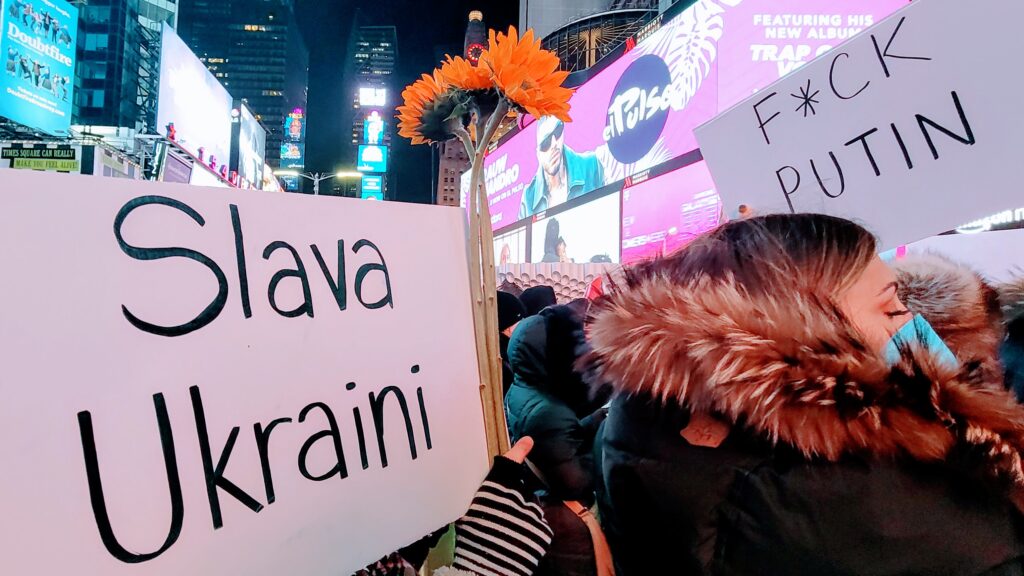Ukraine Cyber Defense Intact, Volunteer Force Engaged in Defense and Counter-Information Operations, Says Official
Justin Hendrix / Mar 4, 2022
Viktor Zhora, Deputy Head of the State Service for Special Communication and Information Protection of Ukraine, briefed reporters on Friday about his country's cyber defenses. He noted that despite the fact that "Russians are killing us with missiles and tanks," the state cyber defense team is functioning and the team has established processes to continue operation.
"We continue reducing cyber incidents, continue helping government agencies to be protected from cyber attacks, and we continue to support our cybersecurity systems in a state cyber protection center," said Zhora.
Zhora discussed the volunteer "army" of "specialists, software developers, QA testers, our friends and Ukrainians all over the globe united to defend our country in cyberspace."
And, Zhora suggested the "IT Army," which is not directly tied to the government, may now include many as 400,000 participants, though it is unclear what degree of participation is typical. A Telegram group referenced in a tweet by Ukraine’s minister of digital transformation, Mykhailo Fedorov, has swelled close to 300,000, according to the New York Times.
We are creating an IT army. We need digital talents. All operational tasks will be given here: https://t.co/Ie4ESfxoSn. There will be tasks for everyone. We continue to fight on the cyber front. The first task is on the channel for cyber specialists.
— Mykhailo Fedorov (@FedorovMykhailo) February 26, 2022
Zhora said there were "a number of different methods" being used by the volunteers to reach Russian citizens behind a border that is increasingly closed to external media and technology platforms, including calling them directly, sending emails, sending text messages and sharing messages and photos on social media. The volunteer army is made up of constituencies including Ukrainian students and others in the diaspora, as well as "cybersecurity experts and leaders" that coordinate their actions.
Zhora said the efforts of the government are defensive, noting "all these operations are to protect our land in cyberspace."
Zhora said the volunteers appear to see "three groups of targets," including government services used to target the aggression on Ukraine. "The second is media- the media is constantly lying to Russia citizens, making them believe that Ukraine are fascists, that Ukrainians should be extinct, removed from Earth." And the third, he said, is transportation. "They use transport to deliver soldiers and arms, to attack Ukraine."
Various groups-- including Anonymous and the Belarusian Cyber-Partisans-- claim to have conducted cyber attacks on behalf of Ukraine, including targeting Russian rail systems.
But, Zhora said, the government is not directly involved in the activities of such volunteers, and he noted that his office does not welcome any "illegal" activity. He said his office is more concerned with continuity of government and cyber defenses for officials being targeted, as well as forensics and collecting evidence of attacks. He says the Russian cyber offensive is more focused on targeting individuals at present than institutions.
"The world order changed on the 24th of February," said Zhora. "I don't think appealing to moral principles works, since our enemy doesn't have any principles. They are killing innocent people, children, women, they're firing on hospitals."
Zhora thanked U.S. businessman Elon Musk for making Starlink internet service available to Ukraine. Some Ukrainian citizens have had connectivity challenges amidst the invasion.
Starlink — here. Thanks, @elonmusk pic.twitter.com/dZbaYqWYCf
— Mykhailo Fedorov (@FedorovMykhailo) February 28, 2022
Zhora emphasized the limitations of his country's cyber defenses in the face of Russian violence. He said the most urgent need is for Ukraine to acquire conventional weapons to defend itself.
"It's not possible to win a cyber war and to lose a conventional war," he said. "I believe that the cyber war can be ended with the end of conventional war, and we will do everything to make this moment closer."
In an announcement posted to its website Friday, NATO's Cooperative Cyber Defense Centre of Excellence (CCDCOE) announced it would admit Ukraine as a "contributing participant," alongside its 27 sponsoring nations, suggesting potential closer coordination with NATO on cybersecurity in the future.
“Capability and knowledge comes from experience, and Ukraine definitely has valuable experience from previous cyber-attacks to provide significant value to the NATO CCDCOE. Estonia as a Host Nation of the CCDCOE has been a long-term partner for Ukraine in enhancing its cyber security capacity and cyber resilience and we welcome the decision of the members of CCDCOE agreeing to Ukraine’s membership,” said Minister of Defense of Estonia Kalle Laanet.
Authors
